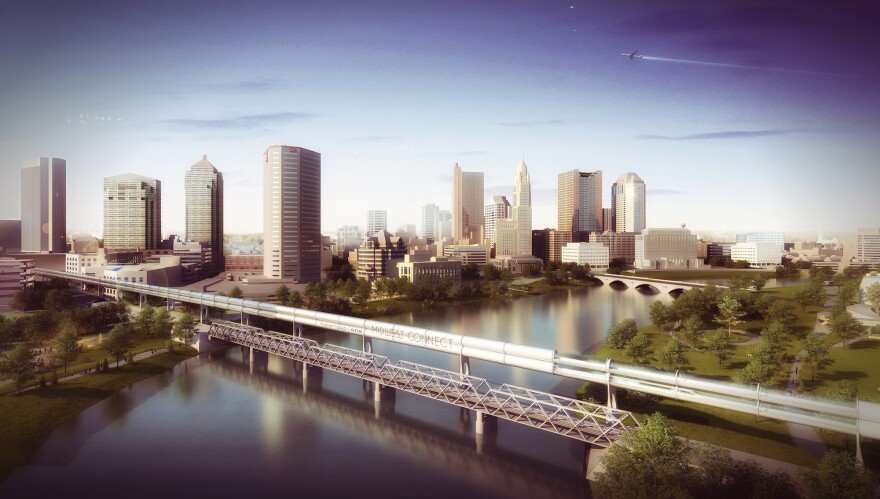Could the Hyperloop pipe dream become a reality? Officials in Columbus and around the region are pitching in money to find out.
Columbus is contributing $250,000 to a $2.5 million effort that will study the feasibility of a Hyperloop route, which would pass through the city on its way from Pittsburgh to Chicago.
According to the Mid-Ohio Regional Planning Commission, the "Rapid-Speed Transportation Initiative" will include two studies: one on the workability of such a Hyperloop route, and another on possible environmental effects.
The studies would also examine traditional passenger rail between the cities.
Other municipalities contributing money to the studies include Marysville and Lima.
“We are excited to partner with leading public and private organizations on the future of rapid-speed transportation here in Central Ohio,” said MORPC executive director William Murdock in an emailed statement.
The studies follow news that the Pittsburgh-Columbus-Chicago route was one of 10 winners of the Hyperloop One worldwide competition.
“Being in one of the fastest growing regions in the Midwest and with the potential to add up to 1 million people by 2050, we are taking the next steps in exploring the best transportation options for both passengers and freight that will better connect Columbus to Chicago and Pittsburgh,” the statement said.
A hyperloop system has proven moderately successful in field tests, but has not made it to the market anywhere in the world. It relies on passenger-carrying pods that use electric propulsion to travel through an above-ground tube, reaching upwards of 700 mph.
If constructed in Columbus, the Midwest Connect Hyperloop would deliver passengers to Chicago in just 29 minutes or to Pittsburgh in 18. The nine other winners include three U.S. cities: Denver, Miami and Houston. International competitors include Mexico City and Mumbai.
Columbus is the second largest city in the U.S. without an intercity train or bus system.





